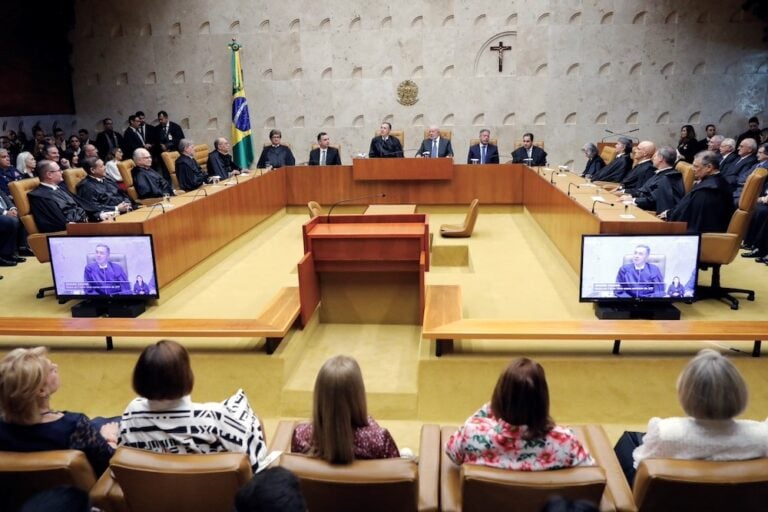(PERIODISTAS/IFEX) – On 8 August 2002, the governor of Rio de Janeiro, Benedita da Silva, ordered the dismissal of two high ranking officers from the state civil police, following the release of a report on journalist Tim Lopes’ murder by a gang of criminals. The report in effect blames Lopes for having taken too great […]
(PERIODISTAS/IFEX) – On 8 August 2002, the governor of Rio de Janeiro, Benedita da Silva, ordered the dismissal of two high ranking officers from the state civil police, following the release of a report on journalist Tim Lopes’ murder by a gang of criminals. The report in effect blames Lopes for having taken too great a risk while gathering information for a report on drug trafficking. The TV Globo reporter disappeared on 2 June and his death was confirmed one month later.
The report was sent to the Rio de Janeiro First Criminal Jurisdiction by the chief of the Civil Police’s 22nd Division. It states that “in his eagerness to record better images of the drug traffickers, [Lopes] misjudged the situation and put himself in a dangerous position; an error which resulted in his being detained and eventually killed.” The report also identifies the nine individuals who allegedly took part in the crime, five of whom are currently under detention.
Governor da Silva was very angered by the police’s criticisms of Lopes’ behaviour, which in effect blamed the journalist for his own death. She called for the dismissal of Police Commissioner Sérgio Rogério Costa Falante and Inspector Daniel Gomes de Lima Freire, of the 22nd Division of the city of Rio de Janeiro. ??The Public Security Office ?? (Corregiduria de Seguridad Pública) will examine Gomes’ responsibility in authoring the report.
In a press release, Da Silva recognised that the scandal caused by the police report “angered those police officers who are committed to the investigation and capturing Tim Lopes’ assassins. This demonstrates how seriously some of the police force in Rio de Janeiro has deteriorated, and how much needs to be done to restore this important institution’s credibility.” The governor announced that she would launch a new investigation into the journalist’s death, in search of more satisfactory results.
Lopes disappeared on the night of 2 June after going to Favela Vila do Cruzeiro, north of Rio de Janeiro, to obtain information and recordings about gangs of drug traffickers operating in impoverished communities knows as “favelas”. Since that time, the state authorities and Federal Police have come up with hypotheses as to what occurred, and have detained some individuals, but these efforts have not been sufficient to resolve the crime or lead to the arrest of those mainly responsible for the assassination.
The police investigators believe that Lopes was apprehended, tortured and assassinated by the Comando Vermelho gang, a group of over 300 armed men who dominate the favelas north of Rio de Janeiro. The gang is led by Elias Pereira da Silva, alias “Elias Maluco”, who is believed to have killed the journalist with a samurai sword and given the order for his body to be cut up and burned. The police has based its conclusion on testimonies obtained from residents of local favelas and criminals arrested after the assassination.
Fernando Sátiro da Silva, also known as “Frei”, and Reinaldo Amaral de Jesus, also known as “Cadê”, were two of the gang members who were arrested. They stated that Lopes was spotted in the favela carrying a hidden mini-camera and then, in accordance with Pereira da Silva’s orders, was taken to a place in the Favela da Grota, near Vila do Cruzeiro, where criminals execute their victims. Besides Pereira de Silva, other prominent drug traffickers were also present, including André da Cruz Barbosa, alias “André Capeta”, Maurício de Lima Matias, alias “Boizinho”, and Renato Souza, alias “Ratinho”. De Lima Matias died in a shootout with the police on the same day that the police’s report was released, while the other three individuals are still at large.
The daily “Jornal do Brasil” speculated that it is possible that the three suspects will not face trial. “According to Attorney Viviane Tavares Henriques, if the individuals who are still at large are captured but are unable to obtain lawyers for their defence, the case will be dismissed,” the daily reported.


